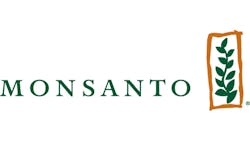Monsanto Rebuffs Bayer Offer as ‘Financially Inadequate’
Monsanto Co. (IW 500/75) rejected Bayer AG’s $55 billion takeover offer, leaving the German chemical giant to decide whether to raise its bid a second time in its quest to create the world’s largest producer of seeds and pesticides.
Monsanto said in a statement Tuesday that while the bid was “financially inadequate,” the company is open to further talks with Bayer and other parties about a deal. Bayer said it was “disappointed” in a statement, calling the revised all-cash offer a “compelling opportunity” that “represents immediate and certain value for Monsanto shareholders amid recent weak business performance.” The German company said it would continue in the talks.
It’s the second time Bayer has been rebuffed by Monsanto, which rejected a $122-a-share offer in May. Bayer had sought to gain access to internal Monsanto data with a higher bid, and last week raised its proposal to $125 a share, which it said represents a 40% premium from Monsanto’s closing price on May 9, before the company made its first offer.
“Bayer’s faced with the question, how much will it cost to get a peek at Monsanto’s books,” Jason Miner, a Bloomberg Intelligence analyst, said by phone. Bayer has the financing available to raise its offer to about $158 a share, he said.
Buying St. Louis-based Monsanto would give Bayer the largest seed supplier and a pioneer of crop biotechnology. The kind of genetically modified seeds Monsanto started to commercialize two decades ago now account for the majority of corn and soybeans grown in the U.S. Monsanto also sells seeds in foreign markets including Latin America and India.
BASF Deal?
Bayer’s pursuit of Monsanto has been far from smooth. The German company has faced pressure from some investors concerned it may pay too much. And there’s the prospect that Monsanto may choose another suitor amid a round of consolidation that’s reshaping the agricultural chemicals industry. Bloomberg News reported last week that Monsanto might entertain a deal with another German chemicals giant, BASF SE.
Bayer’s faced with the question, how much will it cost to get a peek at Monsanto’s books.”— Jason Miner, Bloomberg Intelligence analyst
The offer from Bayer marks a reversal of roles for the U.S. company. Monsanto has long sought to become a one-stop shop for farmers by boosting its crop chemicals portfolio to complement its seeds business. To that end, it had pursued the purchase of Syngenta AG on at least three separate occasions over the years.
Industry Reshaped
The crop and seed industry is being reshaped by a series of large transactions that may end up leaving just a few global players who can offer a comprehensive range of products and services to farmers. China National Chemical Corp. agreed in February to acquire Syngenta. Meanwhile, DuPont Co. and Dow Chemical Co. plan to merge and then carve out a new crop-science unit.
Despite its preeminence in seeds, Monsanto has become vulnerable to a takeover as a number of problems piled up this year. The company has clashed with some of the world’s largest commodity-trading companies and become locked in disputes with the governments of Argentina and India. Last month, Monsanto said year-end earnings would settle at the lower end of guidance.
Farmers have seen their incomes fall in the last few years amid declining commodity prices, and that’s spurred them to increasingly demand products tailored to their needs, according to Miner. Monsanto has become over-reliant on seeds at the expense of crop chemicals such as pesticides, something that spurred the company in its ultimately unsuccessful pursuit of Syngenta, Miner said.
Crop Chemicals
A deal with BASF means Monsanto could sell farmers a greater offering of crop chemicals along with seeds, helping it compete with industry leaders in the midst of deals that would create seed and chemical behemoths.
Monsanto was founded in 1901, its first product was the artificial sweetener saccharin. Until the late 1970s, the company produced highly toxic polychlorinated biphenyls, known as PCBs. It was also among companies that manufactured the mixture of herbicides known as Agent Orange and used as a defoliant by the U.S. in the Vietnam War.
By Lydia Mulvany
About the Author
Bloomberg
Licensed content from Bloomberg, copyright 2016.
